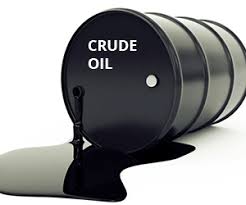Hedge funds are piling into the oil market, betting that prices will soon exceed $100 a barrel, the Financial Times (FT) is reporting.
Hedge funds pool money from investors and invest in securities or other types of investments with the goal of getting positive returns.
On September 5, 2023, Saudi Arabia and Russia extended voluntary production cuts of (combined) 1.3 million barrels of oil per day to the end of the year.
In the report on Thursday, the Financial Times (FT) said the increasing stakes add momentum to a surge sparked by production and export cuts from Saudi Arabia and Russia.
“Riyadh’s extension until December of a 1mn barrel a day oil cut, in addition to further cuts under its Opec+ target, has compounded Moscow’s move to limit exports and pushed prices for Brent crude, the international oil benchmark, to $95 a barrel this week, a fresh high for the year,” the report reads.
According to the FT, exchange and regulatory data suggest hedge fund positioning had exacerbated the about 30 percent increase in oil prices since June 2023, with a spike in the purchase for both Brent and US crude futures, in the past two weeks.
“The latest data showed that the combined fund net long position in Brent and West Texas Intermediate, the US benchmark, jumped by 137,000 contracts, or 35 percent, to an 18-month high of 527,000 contracts in the two weeks to September 12,” the report further reads.
FT noted that the figures — equivalent to more than 500 million barrels or about five days worth of global demand — are a widely followed proxy for the activity of speculative players like hedge funds.
An analyst who spoke to the financial publication said hedge fund interest in oil was triggered by Saudi Arabia’s announcement that it would keep its voluntary oil output cuts in place longer than previously thought.
On Monday, Abdulaziz bin Salman, Saudi Arabia’s energy minister, defended the country’s decision to further limit production, saying global demand for oil may drop if global economic growth slows in the months ahead.
“But analysts said Prince Abdulaziz bin Salman’s stance could yet become a self-fulfilling prophecy: rising prices risk complicating central banks’ exit strategies and hampering global demand for oil,” FT said.
“Investors are keeping some of their money on the sidelines, wary, like Prince Abdulaziz, of signs of macroeconomic stress in China and a potential period of stagflation in Europe.”







